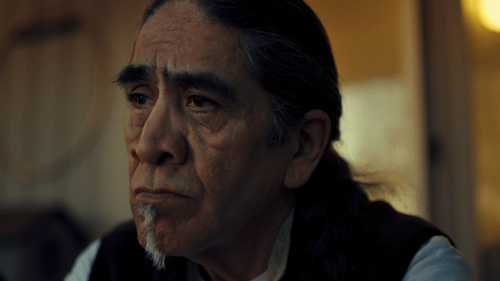
Emily Kassie/Sundance Institute
MOVIE REVIEW
Sugarcane (2024)
One of the worst things about adulthood is realizing there’s no worst story out there. Someone will tell you about a story about rape, torture, child abuse, exploitation, or being sold by their drunk mother for beer money; and you never get to think “this is the worst story I will ever hear.” But the greatest thing about adulthood is that you have power and agency which children are denied; and the greatest thing about great adults is that they use their agency and power to improve things, if not only for themselves, then for other former children. Canada has some dark, shaming history in its treatment of its children, most notably the “scoop” – its practice of forcing indigenous children into residential schools where their connection to their language and culture was tortured out of them. It bears repeating that one residential school had its own electric chair. But the best thing about Canada is that it is finally beginning to face up to those horrible, horrifying wrongs. “Sugarcane” is about one family and several communities’ attempts to address the awful things that happened at one residential school: St. Joseph’s Mission in British Columbia. This is an important documentary about courage and the different ways people seek justice, but be warned, it also contains some of the worst stories you could ever hear.
St. Joseph’s Mission is important for three reasons. Firstly, the way in which the children at the school were treated was the direct inspiration for Canada’s “Orange Shirt Day” which is now a national annual holiday. Secondly, the documentary begins just after unmarked graves were found at a different residential school, which has prompted the local authorities, led by Chief Willie Sellars, to organize a search for graves at St. Joseph’s Mission. And finally, the school was the birthplace of codirector Julian Brave NoiseCat’s father, Ed Archie NoiseCat. And if you think that a baby being born inside of a school means that something went horribly wrong, you have no idea.
Mr. Brave NoiseCat and his codirector Emily Kassie mix four related strands in their 107-minute run time: Mr. Archie NoiseCat’s quest to find out the truth of his birth; the visit another Chief, the late Rick Gilbert, takes to the Vatican for a historic audience with Pope Francis to discuss the atrocities committed by the Catholic Church in places like St. Joseph’s; the work of an investigator, Charlene Belleau, to identify everyone at St. Joseph’s through archival research and witness testimony, in order to identify all the dead and missing children as well as any potentially living perpetrators; and the work of Chief Sellars as he supervises the search for the graves alongside his other responsibilities. Amongst these strands are several bombshells that other, lesser, directors would honed in on to the exclusion of everything else. But Mr. Brave NoiseCat and Ms. Kassie are wise enough to know that in this context, those bombshells were only small parts of the much larger picture. It’s very intense, but there is also copious footage of cleansing ceremonies or people embracing, as a chance to allow the audience to catch our breath.
There’s been a recent global shift in how we think of cultural and political responsibility, which includes a shift away from the influence of organized religion (for example, Ireland is also in the middle of its own reckonings with the crimes of the Catholic Church against children and its own unmarked graves). In many places there is less tolerance of institutional racism and even less tolerance of child abuse. One would hope that we’ll never hear testimony again like that from a witness who made half a dozen attempts to report the sexual abuse she was enduring to different trusted adults, only for the word to get back to her father, who reacted by beating the shit out of her. The legal necessity for mandated reporters is suddenly, vividly apparent. But where “Sugarcane” truly shines is in its knowledge that the least we can do for the survivors is listen to their stories and respect the courage it takes to put such awful experiences into words. When children are abused, they don’t have the life experience to understand what is happening or why. But if they are lucky, children grow up, and if they are luckier still they get the chance to tell the truth and shame the devil.
“Sugarcane” derives its importance from the courage on display here, most obviously from teary men finally telling a story they’ve kept to themselves for 50 years, or from a fragile woman in a wheelchair telling a policeman about something awful she saw as a child. But there’s also the courage of Chief Sellars as he breaks some bad news to his children or politely answers a hate-filled email, and the courage of Ms. Belleau as she works to find documented proof of the crimes committed by the nuns and priests. And then there’s Chief Gilbert, wearing a necklace that says “Courage,” sitting in front of the Pope in Rome and then speaking truth to power. It was the most powerful moment this critic witnessed in any film at this year’s Sundance Film Festival, which awarded Mr. Brave NoiseCat and Ms. Kassie the U.S. documentary directing award. This is a very painful documentary, but an absolutely essential one.
Comments